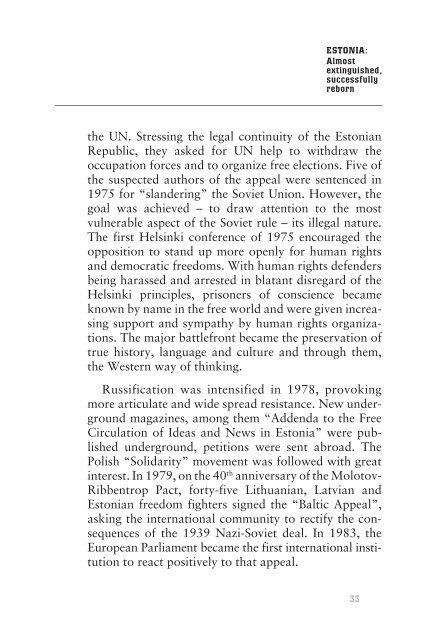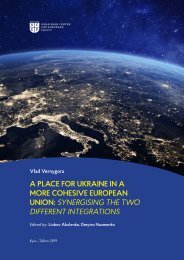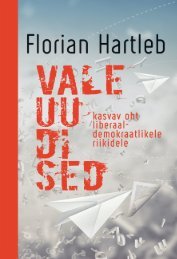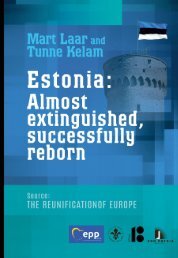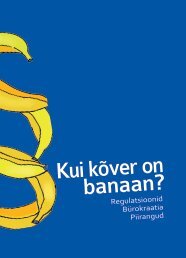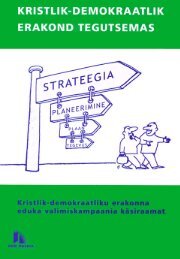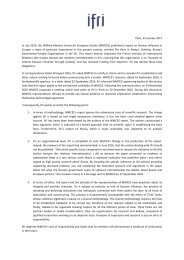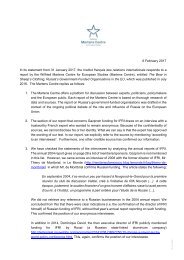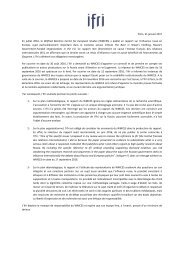Estonia: Almost extinguished, successfully reborn
The following text is the shortest possible review to help inform friends and guests from abroad about Estonia’s experience with foreign occupation and totalitarianism as well as its road to peacefully re-establishing national inde-pendence on the basis of democracy. Tunne Kelam Member of the European Parliament
The following text is the shortest possible review to help inform friends and guests from abroad about Estonia’s experience with foreign occupation and totalitarianism as well as its road to peacefully re-establishing national inde-pendence on the basis of democracy.
Tunne Kelam
Member of the European Parliament
You also want an ePaper? Increase the reach of your titles
YUMPU automatically turns print PDFs into web optimized ePapers that Google loves.
ESTONIA:<br />
<strong>Almost</strong><br />
<strong>extinguished</strong>,<br />
<strong>successfully</strong><br />
<strong>reborn</strong><br />
the UN. Stressing the legal continuity of the <strong>Estonia</strong>n<br />
Republic, they asked for UN help to withdraw the<br />
occupation forces and to organize free elections. Five of<br />
the suspected authors of the appeal were sentenced in<br />
1975 for “slandering” the Soviet Union. However, the<br />
goal was achieved – to draw attention to the most<br />
vulnerable aspect of the Soviet rule – its illegal nature.<br />
The first Helsinki conference of 1975 encouraged the<br />
opposition to stand up more openly for human rights<br />
and democratic freedoms. With human rights defenders<br />
being harassed and arrested in blatant disregard of the<br />
Helsinki principles, prisoners of conscience became<br />
known by name in the free world and were given increasing<br />
support and sympathy by human rights organizations.<br />
The major battlefront became the preservation of<br />
true history, language and culture and through them,<br />
the Western way of thinking.<br />
Russification was intensified in 1978, provoking<br />
more articulate and wide spread resistance. New underground<br />
magazines, among them “Addenda to the Free<br />
Circulation of Ideas and News in <strong>Estonia</strong>” were published<br />
underground, petitions were sent abroad. The<br />
Polish “Solidarity” movement was followed with great<br />
interest. In 1979, on the 40 th anniversary of the Molotov-<br />
Ribbentrop Pact, forty-five Lithuanian, Latvian and<br />
<strong>Estonia</strong>n freedom fighters signed the “Baltic Appeal”,<br />
asking the international community to rectify the consequences<br />
of the 1939 Nazi-Soviet deal. In 1983, the<br />
European Parliament became the first international institution<br />
to react positively to that appeal.<br />
33


